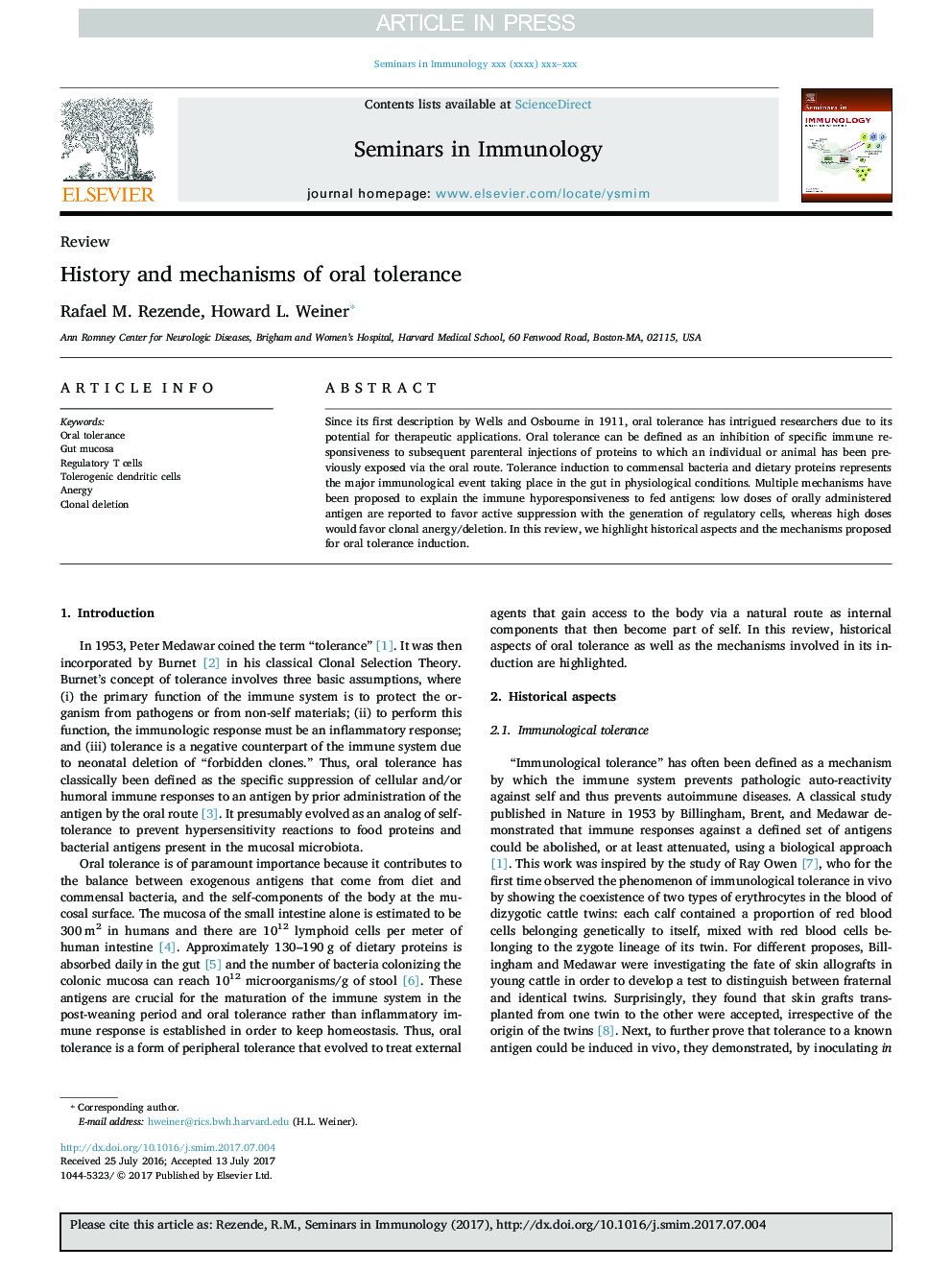| Article ID | Journal | Published Year | Pages | File Type |
|---|---|---|---|---|
| 8743739 | Seminars in Immunology | 2017 | 9 Pages |
Abstract
Since its first description by Wells and Osbourne in 1911, oral tolerance has intrigued researchers due to its potential for therapeutic applications. Oral tolerance can be defined as an inhibition of specific immune responsiveness to subsequent parenteral injections of proteins to which an individual or animal has been previously exposed via the oral route. Tolerance induction to commensal bacteria and dietary proteins represents the major immunological event taking place in the gut in physiological conditions. Multiple mechanisms have been proposed to explain the immune hyporesponsiveness to fed antigens: low doses of orally administered antigen are reported to favor active suppression with the generation of regulatory cells, whereas high doses would favor clonal anergy/deletion. In this review, we highlight historical aspects and the mechanisms proposed for oral tolerance induction.
Related Topics
Life Sciences
Immunology and Microbiology
Immunology
Authors
Rafael M. Rezende, Howard L. Weiner,
